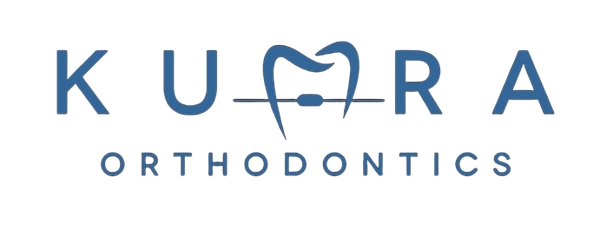An uneven jaw can affect more than just your appearance—it can impact how you chew, speak, and even how comfortable you feel in your own smile. If you’ve noticed that your jaw looks off-center, your smile feels “crooked,” or you’re experiencing pain and difficulty chewing, you’re not alone. Many people live with jaw misalignment, and the good news is that there are effective treatments available.
At Kumra Orthodontics, we believe that understanding your condition is the first step toward correcting it. In this guide, we’ll walk you through the signs, causes, and treatment options for an asymmetrical jaw—so you can feel informed, confident, and ready to take the next step toward a balanced smile.
First, How Do I Know if My Jaw is Uneven? Key Signs and Symptoms
Some people immediately notice their jaw looks different on one side, while others first notice discomfort or difficulty chewing. Below are the most common signs.
Visual & Aesthetic Symptoms
- Facial asymmetry – one side of the face appears different from the other
- Chin or jawline off-center – the lower jaw shifts to one side
- A lopsided smile – one corner of the mouth lifts differently
- Difficulty closing lips comfortably
Functional & Physical Symptoms
- Jaw pain or soreness (sometimes related to TMJ disorders)
- Clicking, popping, or grinding sounds when moving the jaw
- Difficulty chewing or biting evenly
- Chronic headaches or earaches
- Uneven tooth wear caused by a misaligned bite
If you’re experiencing any of these symptoms, it may be time to consult a specialist.
What Causes Jaw Asymmetry? A Breakdown of the 7 Main Culprits
As Dr. Kumra explains, “Jaw asymmetry is often a combination of genetics, bite alignment, and sometimes external factors. The earlier we identify the cause, the easier it is to treat effectively.”
Here are the most common causes of an uneven jaw:
- Genetics & Heredity – Some people are simply born with a naturally asymmetrical jaw.
- Trauma or Injury to the Face – An untreated fracture or impact during childhood can alter growth.
- Temporomandibular Joint (TMJ) Disorders – TMJ dysfunction can cause shifting and discomfort.
- Misaligned Bite & Dental Issues (Malocclusion) – An overbite, underbite, or crossbite can lead to asymmetry.
- Childhood Habits – Thumb-sucking, pacifier use, or prolonged bottle feeding can affect jaw development.
- Developmental or Birth Conditions – Cleft palate or other growth abnormalities can play a role.
- Tumors or Pathologies – Rare, but possible, tumors in the jawbone can create misalignment.
👉 Learn more about how we treat malocclusion with braces.
Your Roadmap to a Solution: Who Do I See and When?
If you suspect your jaw is uneven, knowing where to start can feel overwhelming. Here’s a simple breakdown:
When to See a Professional
Seek help if you have:
- Persistent jaw pain or headaches
- Difficulty chewing or biting
- Noticeable facial asymmetry
- Clicking, popping, or locking of the jaw
Your Team of Experts: Orthodontist vs. Oral Surgeon
- Why Your First Stop Should Be an Orthodontist – Orthodontists specialize in diagnosing and correcting misaligned jaws and teeth. They’ll evaluate your bite, growth patterns, and overall facial balance.
- When an Oral Surgeon Gets Involved – In severe cases, surgery may be required. Surgeons typically work alongside your orthodontist to achieve the best outcome.
At Kumra Ortho, we serve as your first point of contact—guiding your treatment plan and referring you to trusted oral surgeons if necessary.
The Full Spectrum of Treatment: From Non-Invasive Orthodontics to Surgery
Every jaw is different, so treatment depends on your unique case. Let’s look at the most common options.
The Foundation: Can Orthodontics Fix an Uneven Jaw? (Our Specialty)
Yes—in many cases, orthodontics alone can correct an asymmetrical jaw.
At Kumra Ortho, we use advanced techniques to gently guide jaw alignment through braces or clear aligners. Orthodontics not only improves your smile but also corrects functional issues like bite misalignment.
- Traditional Braces – Ideal for complex cases where significant movement is needed. Braces use brackets and wires to gradually shift teeth and improve jaw positioning.
- Invisalign® & Clear Aligners – Perfect for mild to moderate asymmetry. These removable, nearly invisible aligners can realign teeth and improve bite balance.
- Adult Orthodontics – Even if you didn’t get treatment as a child, it’s not too late. Many adults correct their jaw misalignment successfully.
Supportive Therapies & Appliances
- Splints or Mouthguards – Used to relieve TMJ pain or stabilize the bite.
- Physical Therapy Exercises – Helps strengthen jaw muscles and improve mobility.
When Is Surgery Necessary? Understanding Orthognathic Surgery
For severe skeletal discrepancies, orthognathic surgery may be the best option. This procedure repositions the jaw bones for better balance and function. It’s typically combined with orthodontics—braces before and after surgery.
Authoritative resources like the American Association of Oral and Maxillofacial Surgeons provide more details, but your orthodontist will guide you every step of the way.
See the Difference: Real Results from Our DC & Stafford Clinics
At Kumra Ortho, we’ve helped countless patients regain confidence and comfort through jaw correction treatments.
- Case 1: A patient with a crossbite corrected with Invisalign over 18 months.
- Case 2: A severe asymmetry treated with braces and surgery in partnership with a local oral surgeon.
Frequently Asked Questions about Uneven Jaws
Can you fix an uneven jaw without surgery?
Yes—in many cases, orthodontic treatment with braces or Invisalign can correct asymmetry without surgery.
How long does it take to correct a misaligned jaw?
Treatment length varies, but orthodontic correction typically takes 12–24 months. Severe cases requiring surgery may take longer.
Is having a slightly asymmetrical jaw normal?
Yes. Minor asymmetry is very common and often goes unnoticed. Treatment is recommended if it affects function, causes pain, or impacts your confidence.
Does insurance cover treatment for an uneven jaw?
Insurance may cover part of your treatment, especially if it’s medically necessary. Our team can help you navigate your benefits.
Your First Step to a Balanced Smile: Schedule Your Free Consultation
If you’ve noticed signs of an uneven jaw, you don’t have to live with discomfort or insecurity. At Kumra Orthodontics, we specialize in diagnosing and treating jaw misalignment with customized, compassionate care.
📍 Serving Washington, DC, and Stafford, VA, our team is here to guide you from consultation to correction.
👉 Schedule Your Free Consultation at Kumra Ortho today, and let’s create the path to your perfect smile together.



